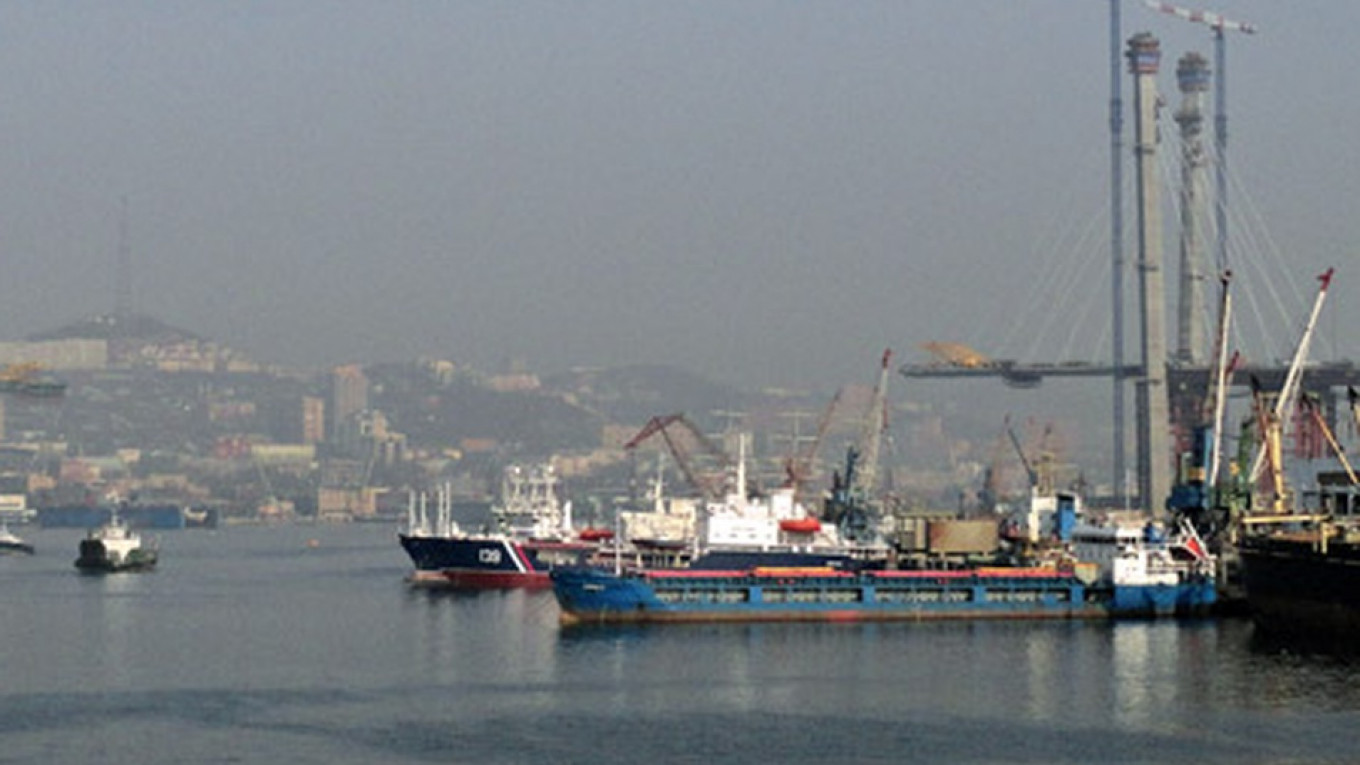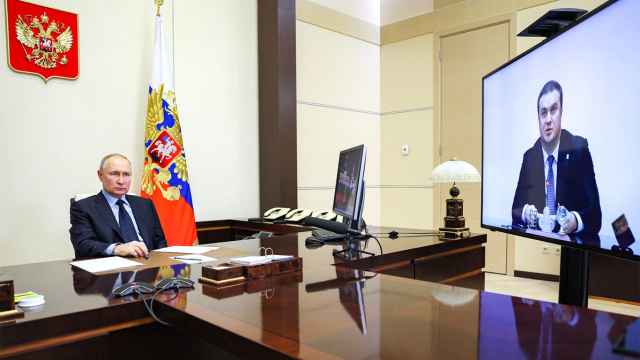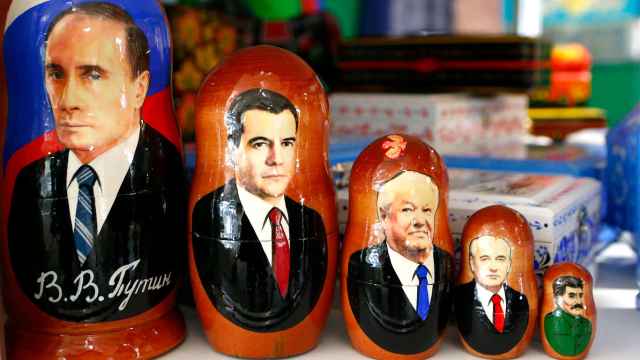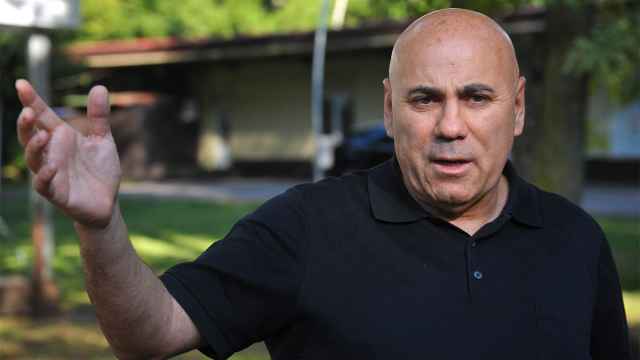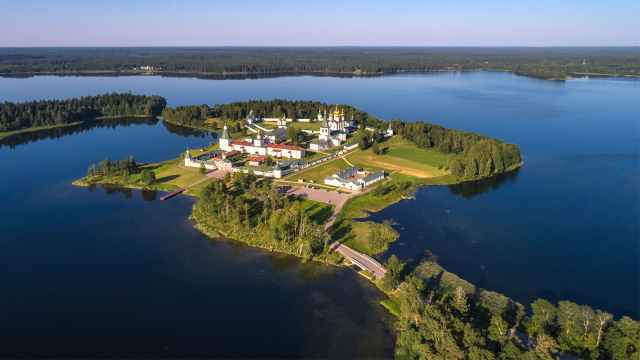Less than two weeks ago, Russian President Vladimir Putin touted to an audience of Asian leaders the success of his policies in revitalizing Russia’s Far East. Since that speech, Kremlin-backed candidates have failed to win gubernatorial elections in the two biggest Far Eastern regions, throwing into doubt Putin’s control over the vast, strategically important lands that lie closer to Tokyo, Seoul and Beijing than to Moscow.
In the last five years, Putin bragged to Chinese President Xi Jinping, Japanese Prime Minister Shinzo Abe and South Korean Prime Minister Lee Nak-yeon at the Eastern Economic Forum in Vladivostok, industrial output in the Russian Far East has increased by almost 22 percent. Thanks to government development programs, he said, 130 new companies have been launched and 16,000 jobs created. He could have added another talking point: In 2017, the Far East, comprising nine of Russia’s 93 constituent regions (95 if one counts the two created by the Crimea annexation), led Russia in private-sector investment, attracting 1.2 trillion rubles ($18.4 billion).
These upbeat reports follow Putin’s focus on the Far East since the start of his previous presidential term in 2012. After calling on Russia to “catch the Chinese wind in our sails,” he set up a state corporation to speed up the region’s development, set up tax-free zones and free ports, and forced state-controlled corporations (whose investment is included in the official “private sector” numbers) to take more of an interest in the Far East. Even before this development blitz, Russia’s easternmost territories saw some state-financed mega-projects such as the construction of two spectacular bridges in Vladivostok at the total cost of $1.6 billion.
The centralization of power has been Putin’s trademark ever since he became president in 2000, and the effort he’s put into Far Eastern projects is understandable given the almost 4,000 miles between Vladivostok and Moscow; it’s just 830 miles to Beijing. Russia’s break with the West following its attack on Ukraine has boosted the Far East’s strategic importance: Moscow’s increased presence there is necessary for a successful Pacific pivot.
And yet something is going wrong with the Kremlin’s effort.
On Sept. 16, the Maritime Territory, which includes Vladivostok, the Far East’s biggest region with a population of almost 2 million, held a runoff vote in the gubernatorial race between Putin’s appointee, Andrei Tarasenko, and his Communist challenger, Andrey Ishchenko. The latter led with 95 percent of the vote counted, but then the official vote count suddenly showed Tarasenko gaining. Putin’s candidate was briefly declared the winner, but then even Russia’s tame Federal Election Commission couldn’t stand the weight of the evidence that the count was rigged in the final hours. Commission Chairwoman Ella Pamfilova even burst into tears when answering reporters’ questions about the vote, which was promptly invalidated. The region will go to the polls again (the date hasn’t been set yet) but the Kremlin doesn’t have a strong candidate.
On Sunday, Vyacheslav Shport, the Putin-appointed governor in the Khabarovsk region, the second-biggest in the Far East with a population of 1.3 million, lost by a landslide to Sergei Furgal of the nationalist, misnamed Liberal Democratic Party. Furgal garnered almost 70 percent of the vote.
Russia is not a land of free and fair elections. Generally, candidates the Kremlin favors are winners, thanks to a combination of vastly superior resources, the incumbency advantage and vote rigging. Candidates representing the radical opposition, such as corruption fighter Alexei Navalny, often aren’t allowed to run. Both Ishchenko and Furgal represent the parliamentary opposition that tends to work comfortably with the Kremlin. And yet their success signifies an important breakdown of the political machinery that keeps the Putin regime in place.
Both Kremlin fiascoes could be written off to the unpopularity of Putin’s plan to increase the retirement age for most Russians. Both Ishchenko and Furgal campaigned against it, putting Moscow’s candidates at a disadvantage. Other Putin appointees have faced electoral trouble lately because of the issue. In Vladimir, in central Russia, Governor Svetlana Orlova lost on Sunday to nationalist Vladimir Sipyagin, ostensibly in large part due to the pension issue.
The Far Eastern failures, however, are different because of all the cash, preferences and political attention Putin has lavished on that part of the country. Despite it all, Moscow hasn’t endeared itself to locals.
Alexey Chadayev, a former Kremlin political aide and one of the few Russian intellectuals loyal to Putin, wrote on his blog that the failures were determined by growing gaps between three levels on which the Far East is run:
At the first, the Commander-in-Chief solves global geopolitical problems; at the second one, corporations fight for procurement contracts, budgets and financial flows; at the third one, business and local people hustle and survive as best they can. All these three processes are completely out of sync with each other.
Both Ishchenko and Furgal are local businessmen who have gained little from all the projects run out of Moscow; in that, they are like most locals. The government money has whistled over their heads like ordnance aimed at some other target. Moscow is still as far away as when Putin began trying to bring it closer. What locals see is, as Chadayev wrote, “corporate mega-projects against the background of a barely solvent car-parts store that has to pay tribute to fire safety inspectors, the taxman, the mob and the customs service.”
“If you live in the midst of this, you’ll vote for the devil himself out of spite,” Chadayev added.
The distance between Putin’s great-power rhetoric, his view that the Russian economy is stable, his huge government investment programs, and the way people lead their daily lives is huge throughout Russia. In most places, apathy fills the gap. In the Far East, however, there’s a lively sense of being on the empire’s edge, a frontier where obedience isn’t a virtue. There’s only a short distance from that to resistance, if not yet to separatism. Attempts at suppression are likely to backfire as badly as the recent vote-rigging campaign in Vladivostok.
Putin has a problem in the Far East that he can’t solve by his customary methods. It’ll be interesting to see whether he has any flexibility left to try other approaches. If not, the threat to his system and its centralizing impulses will escalate.
Leonid Bershidsky is a Bloomberg Opinion columnist covering European politics and business. He was the founding editor of the Russian business daily Vedomosti and founded the opinion website Slon.ru. The views expressed in opinion pieces do not necessarily reflect the editorial position of The Moscow Times.
A Message from The Moscow Times:
Dear readers,
We are facing unprecedented challenges. Russia's Prosecutor General's Office has designated The Moscow Times as an "undesirable" organization, criminalizing our work and putting our staff at risk of prosecution. This follows our earlier unjust labeling as a "foreign agent."
These actions are direct attempts to silence independent journalism in Russia. The authorities claim our work "discredits the decisions of the Russian leadership." We see things differently: we strive to provide accurate, unbiased reporting on Russia.
We, the journalists of The Moscow Times, refuse to be silenced. But to continue our work, we need your help.
Your support, no matter how small, makes a world of difference. If you can, please support us monthly starting from just $2. It's quick to set up, and every contribution makes a significant impact.
By supporting The Moscow Times, you're defending open, independent journalism in the face of repression. Thank you for standing with us.
Remind me later.



